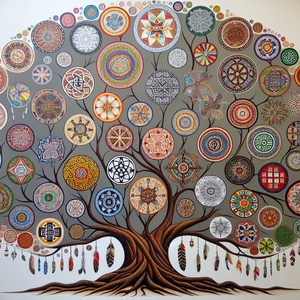Deadpool's Unlikely Role in Mental Health Awareness

Deadpool, also known as Wade Wilson, is not your typical superhero. His backstory includes a terminal cancer diagnosis and subsequent experimentation that leaves him disfigured but with accelerated healing abilities. Alongside these physical transformations, Wade grapples with mental health issues, including post-traumatic stress disorder (PTSD) and depression. These traits make him relatable to many fans who may face their own mental health struggles. Wade Wilson's humor often serves as a coping mechanism, allowing him to navigate his traumatic experiences. The use of humor as a defense mechanism is a common theme in mental health narratives, and Deadpool's portrayal resonates with audiences who may use laughter to deal with their own difficulties. For instance, after a particularly harrowing encounter, Deadpool might deliver a quip that lightens the mood, illustrating a universal truth: laughter can be a powerful tool in the face of adversity. By showcasing a character who openly struggles yet continues to find moments of levity, Deadpool invites readers to engage with their own mental health challenges without stigma.
Fostering Empathy and Awareness
Deadpool's impact extends beyond entertainment; he has become a voice in the conversation about mental health. His self-awareness and candidness regarding his struggles encourage fans to reflect on their own experiences. In recent years, there has been a growing movement to destigmatize mental health issues, and Deadpool fits seamlessly into this narrative. Through his antics and vulnerabilities, he exemplifies that it’s okay to not be okay. In both the comics and films, Deadpool often acknowledges his mental state, even addressing the reader or viewer directly about his feelings. This meta-narrative approach breaks down the barriers between the character and the audience, creating a shared understanding. For example, in the comics, Deadpool frequently breaks the fourth wall, saying things like, “You think I’m crazy? Have you seen my life?” This not only invites readers into his world but also validates their own feelings of confusion or distress. Fans have reported feeling seen and validated by Deadpool's journey, sparking discussions about mental health in online forums and social media. These discussions often highlight the importance of representation in media, as seeing a character struggle with mental health can empower individuals to seek help for their own issues.
The Power of Comic Book Narratives
Comics have a unique ability to convey complex themes through accessible storytelling. Deadpool's narratives often explore themes of identity, trauma, and recovery. By depicting a character who embodies both humor and pain, comic book creators have the opportunity to foster empathy among readers. The juxtaposition of Deadpool's outrageous antics against his internal struggles serves to humanize him, reminding us that even the most seemingly invincible characters face battles of their own. Moreover, Deadpool has inspired numerous fan discussions and online communities focused on mental health. These platforms allow fans to share their stories, support one another, and engage in meaningful conversations about mental wellness. For instance, social media platforms like Reddit and Twitter have seen the emergence of fan threads dedicated to discussing Deadpool's portrayal of mental health, where individuals share their own experiences and how they relate to Wade Wilson's journey. The community surrounding Deadpool has turned into a space for healing and understanding, showcasing the profound impact a fictional character can have on real-life issues.
Deadpool may be known for his humor and action, but his role in promoting mental health awareness is an essential aspect of his character. By navigating his own struggles and openly discussing them, he offers a unique perspective that resonates with fans worldwide. As we continue to explore the intersection of comic book narratives and mental health, it's clear that characters like Deadpool can foster empathy, spark conversations, and ultimately contribute to a more supportive dialogue surrounding mental wellbeing. In a world where mental health is still often stigmatized, Deadpool stands as a reminder that vulnerability and strength can coexist, paving the way for deeper understanding and acceptance. His legacy may not just be that of a comedic antihero, but as a beacon of hope for those who grapple with their own mental health challenges. Through Wade Wilson, we are reminded that even in the face of chaos, laughter and openness can lead to healing.
Mental Health Advocate
Core Responsibilities
Develop and implement community outreach programs to raise awareness about mental health issues.
Collaborate with mental health professionals to create resources that promote mental wellness.
Facilitate workshops and support groups to encourage open discussions around mental health.
Required Skills
Strong communication and interpersonal skills to engage with diverse audiences.
Knowledge of mental health issues and community resources available.
Experience in public speaking or event coordination.
Common Employers
Nonprofit organizations
health care institutions
educational institutions
Comic Book Writer/Scripter Specializing in Mental Health Themes
Core Responsibilities
Create engaging narratives that incorporate mental health issues into comic book storylines.
Collaborate with illustrators to ensure that the visual representation aligns with the themes of mental health.
Research mental health topics to accurately portray characters' experiences and challenges.
Required Skills
Excellent writing skills with the ability to convey complex themes in an accessible manner.
Understanding of comic book structures and storytelling techniques.
Sensitivity and awareness of mental health topics to avoid stereotypes or misinformation.
Common Employers
Comic book publishers
independent comic creators
graphic novel companies
Psychologist Specializing in Trauma and Humor Therapy
Core Responsibilities
Provide therapy to clients using humor as a therapeutic tool to address trauma and mental health struggles.
Conduct assessments to tailor treatment plans that incorporate humor and coping strategies.
Engage in ongoing research to explore the effectiveness of humor in therapeutic contexts.
Required Skills
Doctorate in Psychology with a focus on trauma or humor therapy.
Licensed to practice in relevant jurisdictions.
Strong empathy and communication skills to build rapport with clients.
Common Employers
Private practices
hospitals
mental health clinics
Social Media Manager for Mental Health Awareness Campaigns
Core Responsibilities
Develop content strategies to promote mental health awareness on various social media platforms.
Monitor and engage with online communities discussing mental health topics, including those related to popular culture.
Analyze engagement metrics to refine outreach efforts and increase audience reach.
Required Skills
Proficiency in social media management tools and analytics.
Strong writing skills with an understanding of mental health issues.
Creative thinking to produce engaging, shareable content.
Common Employers
Nonprofit organizations
mental health advocacy groups
marketing agencies
Content Creator for Mental Health-focused YouTube Channel
Core Responsibilities
Produce and edit video content that discusses mental health themes, using characters like Deadpool as case studies.
Research and collaborate with mental health professionals to ensure content is accurate and informative.
Engage with viewers through comments and social media to foster a supportive community.
Required Skills
Experience in video production and editing software.
Knowledge of mental health issues and the ability to present them in an engaging format.
Strong communication skills to connect with a diverse audience.
Common Employers
Independent content creators
mental health organizations
media companies


